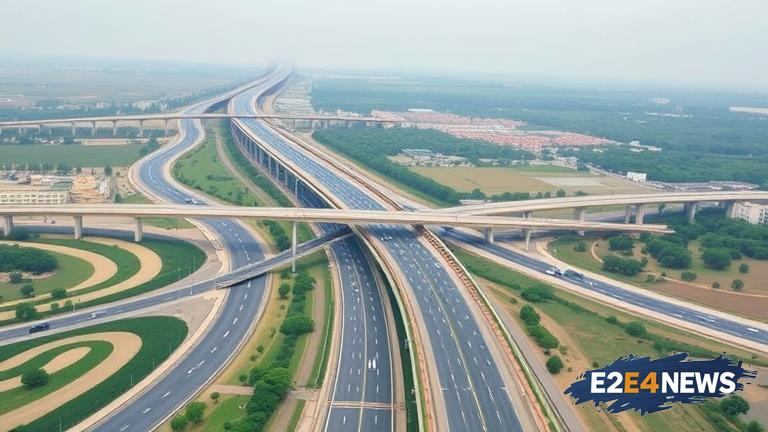The Indian government has unveiled an ambitious plan to construct four new highways connecting the national capital Delhi with its neighboring cities, Gurgaon, Noida, and Faridabad. The move is expected to significantly reduce traffic congestion and travel time between these cities, thereby boosting economic growth and improving the overall quality of life for residents. The new highways will be designed to accommodate the growing number of vehicles on the road, providing a safe and efficient transportation network. The construction of these highways is part of the government’s broader strategy to develop India’s infrastructure and enhance its global competitiveness. The four new highways will be built at an estimated cost of several thousand crores, with the majority of the funding coming from the central government. The highways will be designed to meet international standards, with features such as multiple lanes, service roads, and state-of-the-art tolling systems. The construction process is expected to create thousands of jobs, both directly and indirectly, and will provide a boost to the local economy. The new highways will also improve connectivity between Delhi and its neighboring cities, making it easier for people to travel for work, education, and leisure. The government has identified several key routes for the new highways, including the Delhi-Gurgaon corridor, the Delhi-Noida corridor, and the Delhi-Faridabad corridor. The highways will be built using advanced technology and materials, ensuring that they are durable and require minimal maintenance. The government has also announced plans to develop several new interchanges and junctions along the highways, which will improve traffic flow and reduce congestion. The construction of the new highways is expected to take several years to complete, with the government aiming to finish the project by 2025. The government has also announced plans to develop several new amenities along the highways, including rest stops, fuel stations, and restaurants. The new highways will also be equipped with advanced safety features, such as crash barriers and emergency response systems. The government has identified several key benefits of the new highways, including reduced traffic congestion, improved air quality, and enhanced economic growth. The new highways will also improve connectivity between Delhi and its neighboring cities, making it easier for people to access employment, education, and healthcare opportunities. The government has announced plans to monitor the construction process closely, ensuring that the project is completed on time and within budget. The new highways will be built using environmentally friendly materials and techniques, minimizing the impact on the surrounding environment. The government has also announced plans to develop several new public transportation systems along the highways, including bus and metro services. The new highways will also be equipped with advanced intelligent transportation systems, which will provide real-time traffic updates and optimize traffic flow. The government has identified several key challenges associated with the project, including land acquisition and environmental clearance. However, the government is confident that the benefits of the new highways will outweigh the challenges, and is committed to completing the project on time. The new highways will be a major boost to India’s infrastructure, and will play a key role in the country’s economic development. The government is also planning to develop several new industrial and commercial hubs along the highways, which will create new employment opportunities and stimulate economic growth. The new highways will also improve connectivity between Delhi and its neighboring cities, making it easier for people to access markets, suppliers, and customers. The government has announced plans to provide regular updates on the construction process, and is committed to transparency and accountability throughout the project.
